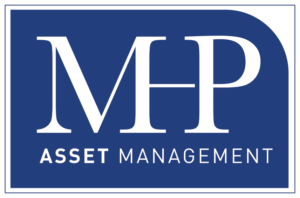Whenever we invest our money in any kind of investment vehicle such as, stocks, bonds, real estate or commodities, we typically have an expected return plugged into our brains based typically on past performance. I can relate to you about my early years as a stockbroker in the middle 90s. If I had municipal bonds to offer, the yield to maturity was often times between four and 6% tax-free to the client. Depending on the client’s tax bracket, that could equate to a tax equivalent yield of eight or 10%. As a new broker I would call the fixed income desk at my firm and try to get new issue municipal bonds held aside for me to garner new clients. The municipal bond buyers were typically wealthier or mature clients compared to the typical equity or stock investors. When I did open an account with that equity or stock client, I would discuss expectations for returns in the market. Often times clients would tell me that the expected return was somewhere between 10% and 20%. Certainly the 20% expectation was high, but the 10% return expectation was a minimum expectation for those equity(stock) clients.
Typically, the investor is using a benchmark of returns from the past to form their expectations of returns in the future. This is often times unrealistic given interest rates and market returns over the last 15 years. Instead of benchmarks based on past market returns maybe we should think about the necessary return needed, that is reasonable in today’s interest rate environment that we require for our future income.
Between 1984 and 1999 the S&P 500 returned nearly 18% per year including dividends. So my client back in 1995 who expected up to 20% was really just conditioned by what the markets were actually returning. The next 15 years, 2000 through 2015 the S&P 500 returned a little over 4% including dividends. Today, the yield on the 10-year note is about 2.7%. In 1995, the yield on the 10 year note was about 6 ½%.
If you are investing money today, just think about real returns in this interest rate environment and understand that the dividend paying stocks are vulnerable to market volatility based on the fact that many investors and their advisors have chased yield and have taken, in my opinion, too much risk for that reward.
An investment grade corporate bond portfolio may offer a yield and coupon of between 4 and 6%, depending on effective duration. If structured properly your advisor should be able to immunize the portfolio against interest rate risk compared to a bond fund, that is perpetual(no maturity date). I am not anti-common stock or equities; my intentions are to maximize returns and minimize risk and to structure a portfolio with purpose. The bond market is nearly twice the size of the stock market however, many new clients that I consult with are primarily in stocks or equity. I get it, stocks are much more exciting than bonds, however our brains chemically react three times greater when we are getting hurt in the markets as opposed to positive reactions in good times, so let’s at least balance our portfolio by investing in low to non-correlated asset classes, known as modern portfolio theory.


























